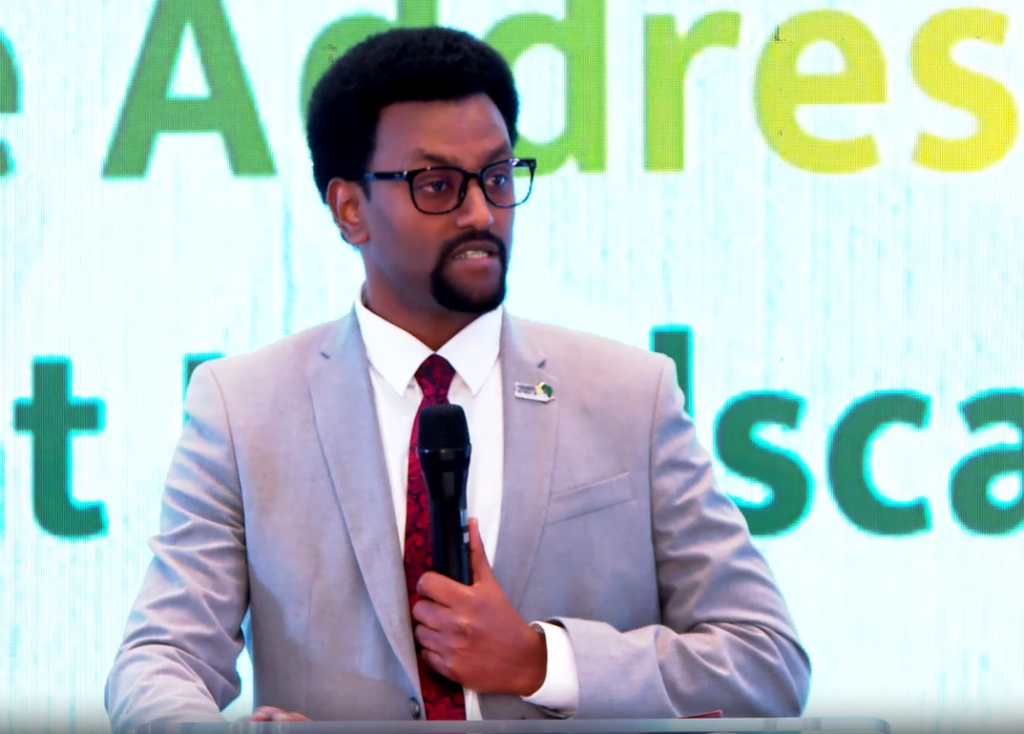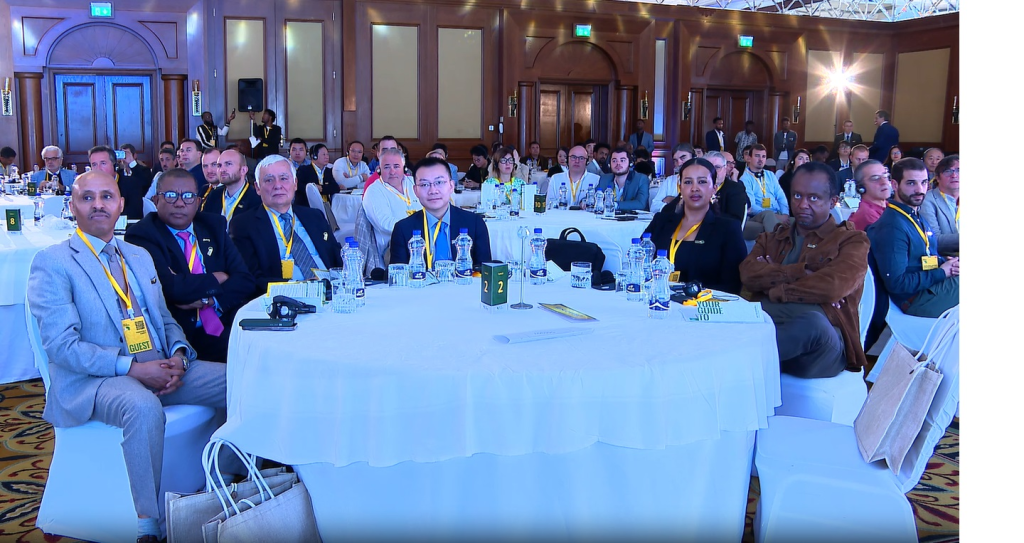
Ethiopian Investment Commissioner Zeleke Temesgen underscored that Ethiopia’s vast potential for companies in the textiles and garments industry has been steadily growing.
The Global Linen Textile Forum 2024 held in Addis Ababa today organized by the Ethiopian Investment Commission and key partners brought together participants from 15 countries.
Co-hosted by Kingdom (Ethiopia) Linen PLC, Kingdom Holdings Limited, the China Bast & Leaf Fibres Textile Association, and The Alliance for European Flax-Linen & Hemp, the forum marked a major milestone for Africa’s linen sector.

In his remarks, Ethiopian Investment Commissioner Zeleke Temesgen highlighted the country’s commitment to sustainable growth and investment opportunities.
According to him, Ethiopia with over 70 percent of its 120 million people under 30, the country would offer a young workforce, abundant natural resources, and sizable arable land suitable for textile raw materials.
Bolstered by its strategic position in the global economy, improved capital productivity and competitive labor market, Ethiopia has been emerging as the new regional sourcing destination for textile and apparel, it was learned.
Foreign direct investment in Ethiopia’s textile sector has surged, growing from 16 million USD in 2015 to over 500 million USD today, with projections to exceed 1 billion USD by next year.
Strategically located with robust infrastructure, including the Addis Ababa-Djibouti railway and Bole International Airport as it is Africa’s busiest cargo hub, the East African nations provide easy access to global markets.
The government has also established Special Economic Zones (SEZs) with a stable power supply to support export-focused manufacturing, he indicated.
“Ethiopia is committed to sustainability, generating 95 percent of its electricity from renewable sources, making it an ideal location for environmentally-conscious production. The country offers attractive incentives, including up to 10 years of tax exemptions, streamlined customs, and benefits for machinery and raw material imports.”
Since 2018, the Ethiopian government has implemented a series of reforms to create a more attractive environment for private sector growth.
Key reforms include liberalizing investment opportunities, easing restrictions on foreign investments, and ratifying special economic zones.
Additionally, Ethiopia is in the process of joining the World Trade Organization (WTO) and actively participates in the African Continental Free Trade Area (AfCFTA) that would enable the country to expanding market access for investors and promoting trade.
Commissioner Zeleke invited global investors to join Ethiopia’s transformative journey, aligning with sustainable practices that meet growing eco-conscious demand.
“Investing in Ethiopia means choosing a future of sustainability, innovation, and prosperity,” he said.
On his part, the Chairman of Kingdom Holding Group, Ren Weiming emphasized the forum’s role in advancing the linen industry, which has brought about some 70 million USD worth of investment in Ethiopia.
“Today, we are united for linen. In this era of globalization, with so much economic uncertainty, the flax industry faces numerous opportunities and challenges.
Here, we exchange ideas, share experiences, and explore innovative approaches together, with the aim of driving sustainable development in the flax industry and enhancing the competitiveness of flax products in the market,” he said.
The Kingdom Ethiopia factory, the largest flax spinning facility in Africa, created over 1,100 jobs and strengthened the region’s textile industry, it was indicated.
The Global Linen Textile Forum 2024 highlighted Ethiopia’s growing position as a major player in the global linen market and its potential to drive the future of sustainable textile production.
Source: ENA






